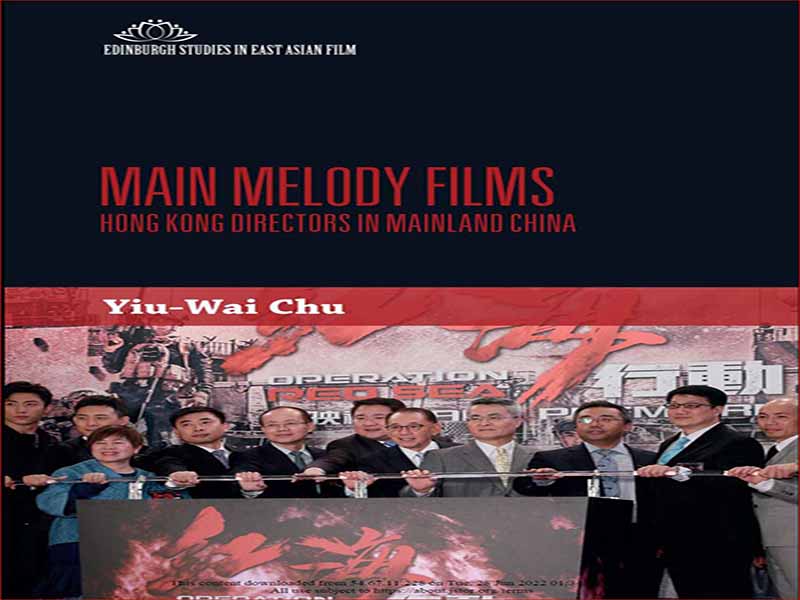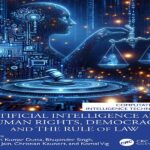- عنوان کتاب: Main Melody Films/Hong Kong Directors in Mainland China
- نویسنده: Yiu-Wai-Chu
- حوزه: سینما
- سال انتشار: 2022
- تعداد صفحه: 289
- زبان اصلی: انگلیسی
- نوع فایل: pdf
- حجم فایل: 1.75 مگابایت
رویای جوان سازی ملی چین که توسط شی جین پینگ در آغاز اولین دوره خود به عنوان دبیر کل و رئیس جمهور چین (PRC) در سال 2012 معرفی شد، همچنان موضوع اصلی سخنرانی او در نوزدهمین کنگره ملی بود. حزب کمونیست چین (حکچ) در 18 اکتبر 2017: «هموطنان ما در هنگکنگ و ماکائو هم مسئولیت تاریخی جوانسازی ملی و هم غرور چینی قوی و مرفه را به اشتراک خواهند گذاشت». توسعه هنگ کنگ و ماکائو نزدیک به توسعه سرزمین اصلی خواهد بود: “ما به حمایت از هنگ کنگ و ماکائو در ادغام توسعه خود در توسعه کلی کشور ادامه خواهیم داد.” برای «تدوین و بهبود سیاستها و اقداماتی برای راحتتر کردن مشاغل هنگکنگ در سرزمین اصلی».3 پس از نوزدهمین کنگره ملی حکچ، پکن برنامههایی داشت سیاستهای جدیدی را برای ادغام مناطق ویژه اداری (SARs) در سرزمین اصلی اجرا کنید، و پیکربندی مجدد هنگکنگ منجر به یک موقعیت حاشیهای و جزئی در طرح جدید پکن خواهد شد. در یک کنفرانس مطبوعاتی در جریان نوزدهمین کنگره ملی، ژانگ هونگسن، معاون اداره دولتی مطبوعات، انتشارات، رادیو، فیلم و تلویزیون (SAPPRFT)، با بیان اینکه [شی] به وضوح به مسیر جدید برای ساخت و ساز اشاره کرد، شی جینپینگ را تکرار کرد. اعتماد به نفس فرهنگی قوی تر و کمک به رشد فرهنگ سوسیالیستی. صنعت فیلم از اصول راهنمای نوزدهمین کنگره ملی CPC پیروی خواهد کرد. (4) اظهارات شی از آن زمان تأثیر عمیق و بی سابقه ای بر همکاری های فرامرزی داشته است. در این زمینه، برای محققان بسیار مهم است که رابطه بین صنایع فرهنگی هنگکنگ و مشابههای سرزمین اصلی آنها را بررسی کنند و از این طریق راههای تعامل اقتصاد سیاسی آنها را فاش کنند.
Th e Chinese dream of national rejuvenation, introduced by Xi Jinping at the start of his fi rst term as General Secretary and President of the People’s Republic of China (PRC) in 2012, remained the central theme of his speech delivered at the Nineteenth National Congress of the Chinese Communist Party (CCP) on 18 October 2017: ‘our compatriots in Hong Kong and Macao will share both the historic responsibility of national rejuvenation and the pride of a strong and prosperous China’.1 Xi also made it very clear that the development of Hong Kong and Macao would be closely tied to that of the mainland: ‘We will continue to support Hong Kong and Macao in integrating their own development into the overall development of the country.’2 In line with this, Xi underlined Beijing’s policy to ‘formulate and improve policies and measures to make it more convenient for people from Hong Kong to develop careers on the mainland’.3 After the Nineteenth National Congress of the CCP, Beijing had plans to roll out new policies to integrate the Special Administrative Regions (SARs) into the mainland, and Hong Kong’s reconfi guration would result in an increasingly marginal, minor position in Beijing’s new blueprint. At a press conference during the Nineteenth National Congress, Zhang Hongsen, Deputy Director of the State Administration of Press, Publication, Radio, Film and Television (SAPPRFT), echoed Xi by saying that ‘[Xi] clearly pointed out the new direction for building stronger cultural selfconfi dence and helping socialist culture to fl ourish. Th e fi lm industry will follow the guiding principles of the 19th CPC National Congress’.4 Xi’s pronouncements have since had a profound and unprecedented impact on cross-border collaborations. In this context, it is paramount for researchers to explore the relationship between Hong Kong’s cultural industries and their mainland equivalents, thereby disclosing the ways in which their political economies interact.
این کتاب را میتوانید از لینک زیر بصورت رایگان دانلود کنید:
Download: Main Melody Films




































نظرات کاربران